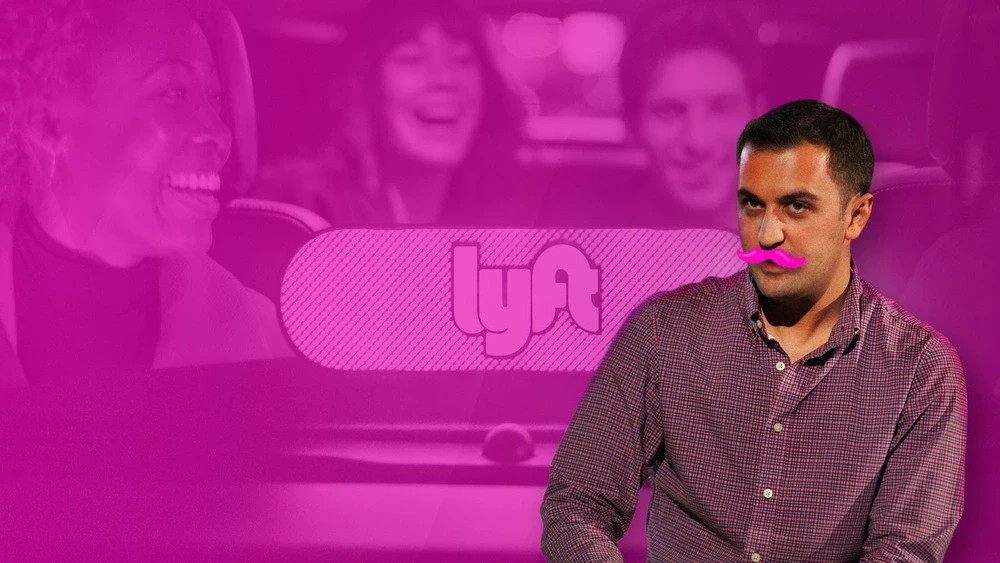New York
Impactful C-suites
John Zimmer: Steering Lyft to Success with Purpose-Driven Leadership
By : Syed Owais Date:February 4, 2025
Ready to Share Your Story or Recommend a Leader?
Join our mission to connect and empower entrepreneurial ecosystem.
Some leaders follow the road. Others pave their own. John Zimmer, the co-founder of Lyft, didn’t just build a ride-sharing company—he helped create an entirely new way for people to move, emphasizing community, sustainability, and shared opportunity over mere convenience.
From his early days envisioning a people-first transportation model to scaling Lyft into a billion-dollar public company, Zimmer’s journey is a masterclass in strategy, adaptability, and leadership with a purpose.
A Vision Born from Shared Rides
John Zimmer’s fascination with transportation started long before Lyft. While studying at Cornell University’s School of Hotel Administration, he realized that most cars on the road carried only one person, leading to waste, inefficiency, and congestion. His studies in hospitality taught him the importance of human connection, and he saw an opportunity: What if technology could make transportation more social and efficient?
This idea led him to Zimride, a long-distance carpooling service co-founded in 2007 with Logan Green. Inspired by the ridesharing culture in Zimbabwe, Zimride aimed to connect strangers heading in the same direction, making travel more affordable and sustainable. But while the concept gained traction on college campuses and corporate networks, Zimmer and Green realized that the future of shared mobility lay in real-time, urban transportation—and so, Lyft was born in 2012.
Lyft’s Bold Differentiation: People Over Profits
Entering the ride-sharing market wasn’t easy. Uber was already dominating, but Zimmer and Green didn’t want to build just another app—they wanted to build a movement.
Their strategy hinged on three core principles:
- Community First: Unlike the transactional nature of other ride-hailing services, Lyft emphasized friendly, human interactions. Drivers were encouraged to display the iconic pink mustache, sit in the front seat, and engage in conversation. The goal? Make ridesharing feel like getting a lift from a friend.
- Sustainability and Innovation: Zimmer believed that car ownership was an outdated concept. Lyft championed shared rides (Lyft Line), bike and scooter rentals, and partnerships with public transit to reduce environmental impact and urban congestion.
- A Fairer Business Model: Where competitors focused on aggressive pricing and driver exploitation, Lyft aimed to create a driver-friendly ecosystem, introducing tipping, driver rewards, and better commission structures.
These decisions made Lyft not just a ride-sharing company, but a brand that resonated deeply with people who valued purpose-driven businesses.
Navigating Challenges and Scaling with Purpose
Lyft’s journey was far from smooth. Competing against a larger, better-funded rival like Uber meant constant adaptation and resilience.
Zimmer led Lyft through multiple strategic pivots:
- Playing the Long Game: While Uber aggressively expanded globally, Lyft focused on the U.S. market, ensuring better service, stronger partnerships, and deeper customer loyalty.
- Winning Over Investors: Despite early skepticism, Lyft secured $600 million from GM in 2016, signaling confidence in its model. In 2019, the company went public with a $24 billion IPO.
- Weathering the Pandemic: COVID-19 nearly brought ride-sharing to a halt, but Zimmer spearheaded initiatives like essential rides programs and food delivery partnerships, keeping the company afloat.
Lessons from John Zimmer’s Leadership Playbook
For C-suite executives and startup founders, Zimmer’s approach offers invaluable insights:
- Culture is a Competitive Advantage: Lyft’s emphasis on community and purpose wasn’t just branding—it became a strategic differentiator that helped attract loyal users and drivers.
- Adaptability is Key: Whether pivoting from Zimride to Lyft, navigating regulatory battles, or responding to crises, Zimmer’s ability to stay agile proved critical.
- Mission-Driven Companies Win in the Long Run: While many tech companies prioritize rapid growth, Zimmer proved that building a values-driven brand leads to lasting impact and success.
Driving the Future of Mobility
Though John Zimmer stepped down from his executive role, Lyft’s mission continues. His legacy as a founder is more than just an app—it’s a shift in how the world thinks about transportation, sustainability, and shared opportunity.
For leaders looking to build not just companies, but movements, Zimmer’s journey is proof that business success and societal impact can go hand in hand.

Syed Owais
Founder & Fractional CBO - Who loves to deliver value over hype. Aiming to build a no-BS community for founders (by founder), investors, venture capitalists, accelerators and journalists.
Subscribe
- Gain full access to our premium content
- Never miss a story with active notifications
- Browse free from up to 5 devices at once












